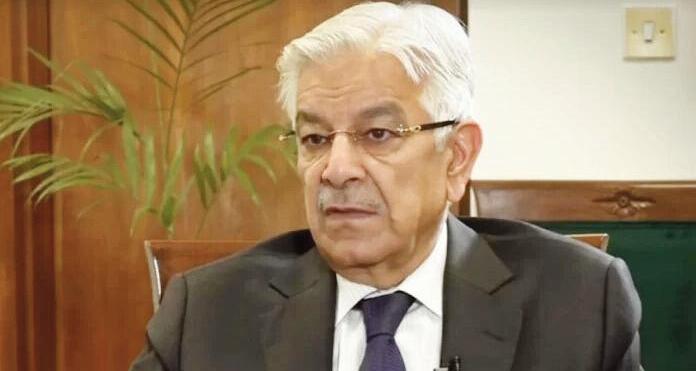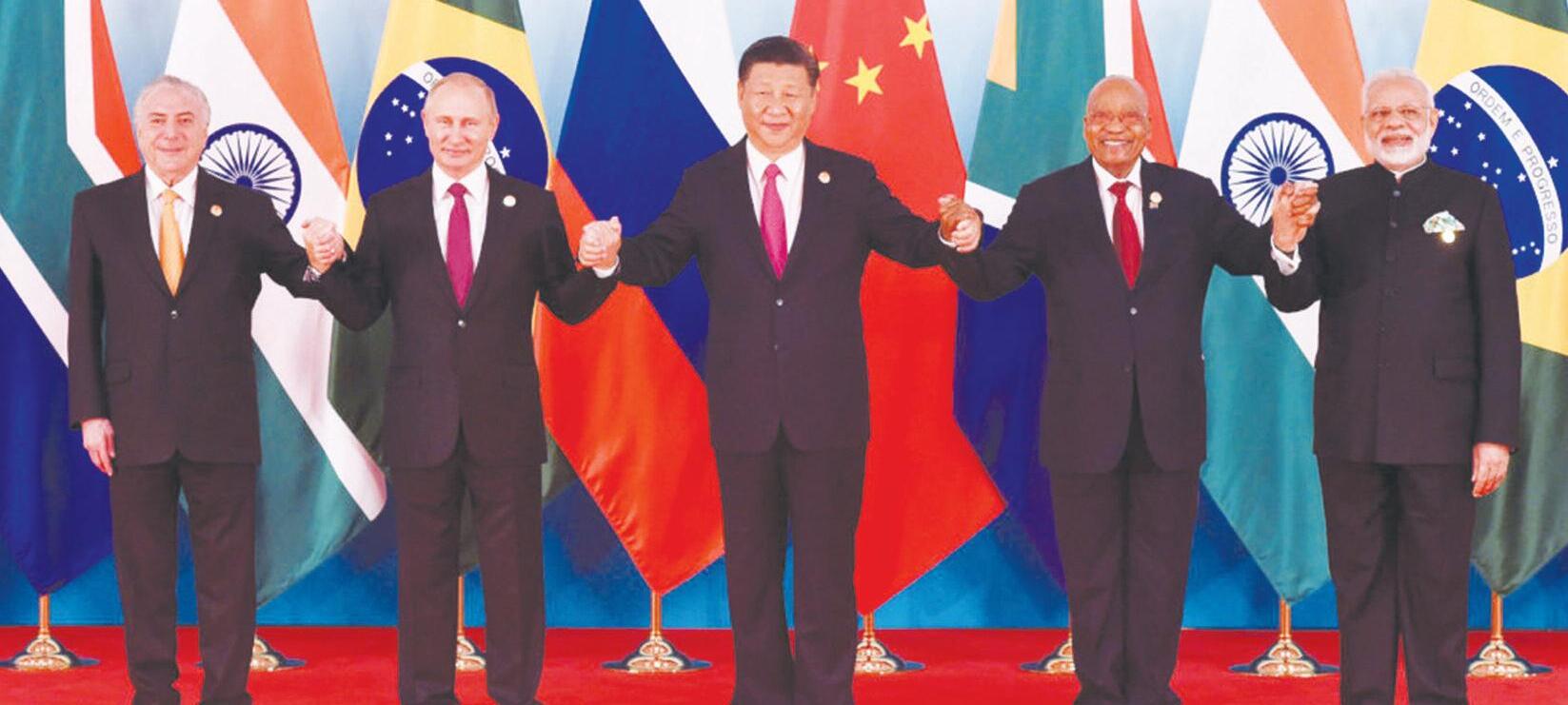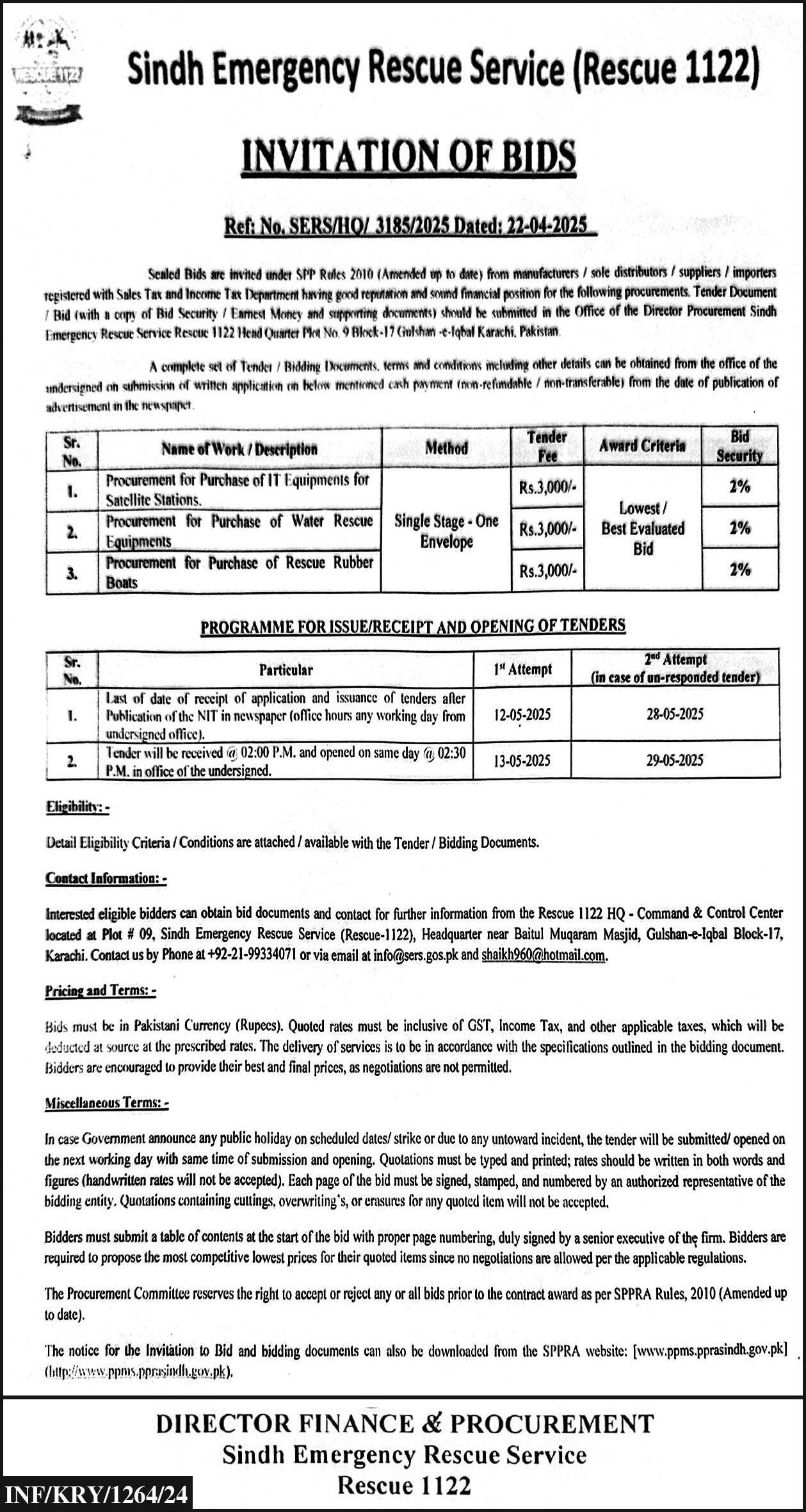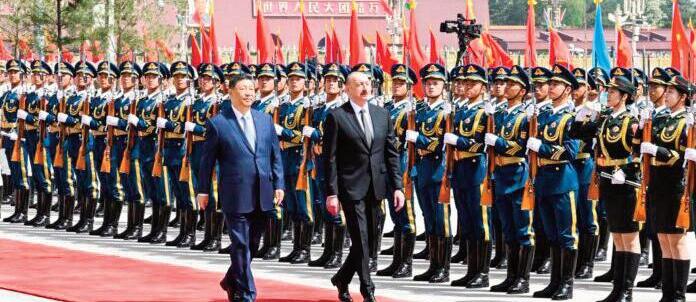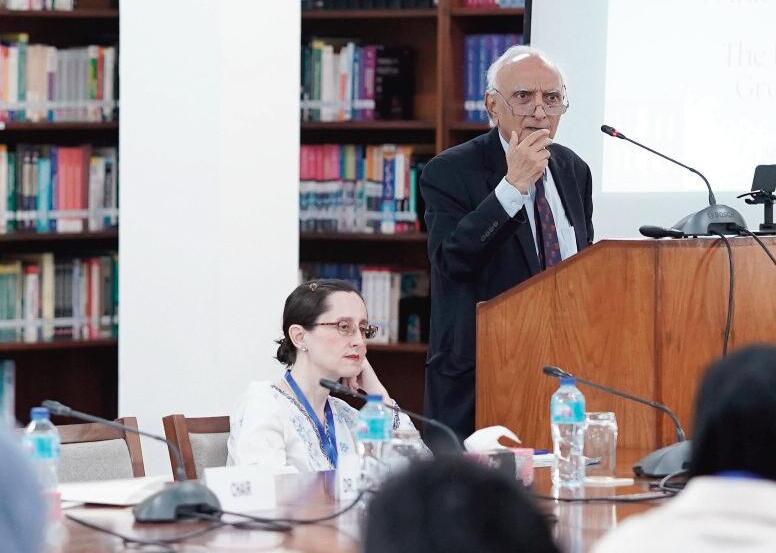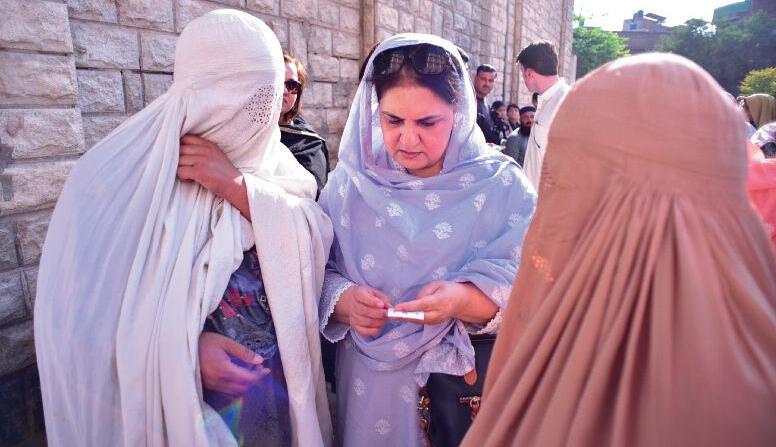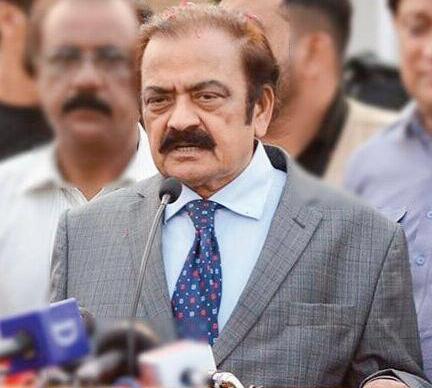Algorithmic autocracy: The silent hijacking of our minds
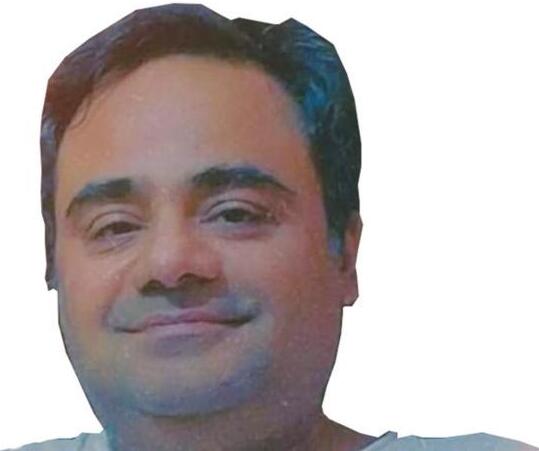

N a world overwhelmed by digital noise it s not human reason or democratic dialogue that guides the course of societies it s invisible lines of code The true puppeteers of public opinion consumer behaviour and electoral outcomes are not charismatic leaders or influential thinkers but something far more sinister: the algorithm We don t merely scroll; we are scrolled Beneath every click, every share, every swipe, a cold, calculated force motivated by profit, not truth dictates what we see, believe, and become This algorithmic manipulation isn’t just a digital trend; it is the silent hijacking of our minds our choices and ultimately our freedom Crafted by powerful tech giants these algorithms were never designed to inform or uplift society but to entrap us in cycles of attention addiction They do not serve democracy they serve commerce In this unseen empire, human agency isn t just undermined it’s quietly engineered into submission What began as an innocent personalization tool a way to tailor content t0o individual interests has morphed into a weaponized mechanism of manipulation As Johnny Ryan senior fellow at the Irish Council for Civil Liberties, wrote in The Guardian, the unchecked power of Big Tech poses a grave threat to democracy and geopolitical balance Algorithms thrive on outrage, division, and misinformation, because these emotions drive engagement Platforms originally built to connect us are now dividing us rewarding sensationalism falsehoods and tribal rage over nuance reason and empathy This isn t just a glitch in the system It is the system Experts like Shoshana Zuboff, in her foundational work The Age of Surveillance Capitalism, and Tristan Harris of the Center for Humane Technology have persistently warned us: when attention becomes currency manipulation becomes standard Tech giants Meta Google ByteDance have commodified human engagement, not for social good, but for shareholder returns Their recommender systems don t merely reflect our preferences; they shape them We are nudged, prompted, and psychologically conditioned through invisible calculations designed to maximize watch time clicks and shares The tragedy? Most users are oblivious to the way their worldview is being subtly and steadily manufactured
Across the globe the fingerprints of algorithmic interference are etched into election results, social movements, and communal unrest From the Brexit campaign and US elections to the unrest in India, Brazil, and even Pakistan the same pattern recurs: artificially amplified narratives coordinated disinformation campaigns and bot-driven polarization all supercharged by algorithms built for virality not veracity In Myanmar, Facebook s algorithm played a documented role in inciting genocide Ethiopia s digital space became fertile ground for algorithm-fueled hate In Pakistan, social media has become a battleground of sectarianism extremism and political toxicity not by chance but by algorithmic design As Europe grapples with the deliberate manipulation of its democratic processes through algorithmic amplification of extremism, the stakes for global democracy are clear The EU s struggle to rein in Big Tech reflects a broader, urgent issue: unchecked algorithms threaten not only political stability but the very fabric of democratic discourse The failure of the European Commission to decisively confront this issue mirrors a global problem that countries like Pakistan where regulatory action is also slow and inadequate, are grappling with The time for meaningful intervention is now not just in Europe, but across the world Worse still, these systems remain opaque and unaccountable The so-called “black box” of algorithmic decision-making shields platforms from scrutiny Even when regulators attempt to intervene their efforts often falter against the wall of proprietary code and legal obfuscation Mozilla s findings that YouTube
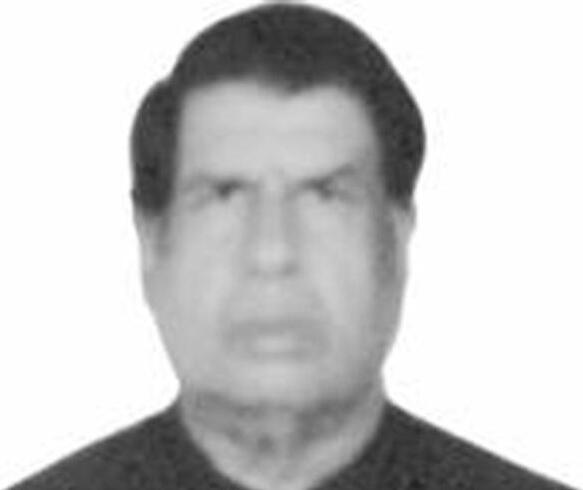

and also explore launching joint ventures in the mining sector pointedly stating that Pakistan’s strong and immense mineral natural resources and deposits could make both the brotherly countries strong partners in this somewhat important area On his part President Lukashenko reaffirmed his country’s commitment to further deepening its existing relationship with Pakistan emphasized the strategic importance of further expanding the existing collaboration between the two countries in trade agriculture industry, and technology and stated that in a confident manner that PM Shehbaz Sharif s visit would surely and certainly pave the way for a long term mutually beneficial partnership between the two countries It was quite noteworthy that the PM visited Belaz the major global manufacturer of mining dump trucks, and transport equipment of mining and construction, near Minsk During the visit, the PM was informed that its first product was made way back in 1950 with production of 25 tonnes truck and since the 1960s the factory had been producing heavy trucks dumpers and mining machinery besides electric dumpers and mining machinery and battery-driven trucks with payload capacity of 550 tonnes It must be stated quite frankly that Belarus was far ahead of Pakistan in many respects as indicated by the PM’s visit to the Belaz factory Talking to his Belarus counterpart Alexander Turchin the PM invited a high-level Belarussian delegation to Pakistan for detailed discussion as to how these machines could be used in his country for productive purposes and also hinted at visiting Belarus again, possibly in the near future to further hold detailed meetings in this regard In turn the Belarussian PM said that he would personally be visiting Pakistan along with a delegation However he did not say as to when his visit would take place The PM s visit to Belarus will surely go a long way in further boosting, strengthening and deepening of the bilateral ties between the two countries as the two countries have not only signed a number of Memoranda of Understanding (MoUs) to foster mutual cooperation in various sectors and the visiting Pakistani PM and the host Belarussian President have vowed without mincing their words to take their relationship to new heights

in a mutually beneficial manner
This quite welcome upturn in bilateral relations quite obviously assumes special significance as it has come within months of the successful visit of the Belarussian President to Pakistan in November 2024 when the two countries had reached an appreciable understanding to deepen and diversify their cooperation reflecting the immense political goodwill and commitment of their leadership
It may also be stated here that the PM s visit was apparently aligned with the objectives and targets which both Belarus and Pakistan had fixed in the Roadmap for Comprehensive Cooperation between the two countries for the period between 2025-27 which was focused on enhancing bilateral economic cooperation through a range of mutually agreed initiatives
The economic cooperation and trade relations between the two can also improve substantially if the governments and the private sectors of both the countries fast-track their sincerely committed search for finding ways and means to reduce the prevalent trade barriers and facilitate access to each other s markets
Further, the PM might like to take Parliament into confidence invariably about each of his successful visits to brotherly countries This would also help the people at large to know as to what their country ‘s leadership was doing and what good and betterment was coming their way in the coming days weeks and months
The writer is Lahore-based Freelance Journalist, Columnist and retired Deputy Controller (News) Radio Pakistan Islamabad and can be reached at zahidriffat@gmail com
The PM might like to take Parliament into confidence invariably about each of his successful visits to brotherly countries This would also help the people at large to know as to what their country Âs leadership was doing and what good and betterment was coming their way in the coming days, weeks and months
Riding side saddle
Majid Nabi buRfat
MuhaMMad Zahid Rifat
Indian strategic multilateral approach and BRICS
mains A critical mechanism in its organiza-
Tglobal economic order that would better represent emerging powers beyond the traditional Western bloc A pivotal moment in this movement came in 2001 when British economist Jim O Neil, then working at Goldman Sachs, introduced the term “BRIC” in his article Building Better Global Economic BRICs The acronym stood for
meeting at the level of foreign ministers in 2006 during the UN General Assembly in New York This marked the beginning of a series of regular meetings among the member states, eventually leading to the inaugural BRIC summit of heads of state/government in Yekaterinburg, Russia, in June 2009 It was during this summit that core themes such as the development challenges facing the Global South and the need to reform global financial institutions like the IMF and World Bank began to dominate the group s rhetoric These meetings underscored the shared frustration among BRIC countries with the existing global governance structures which were seen as dominated by the West A significant expansion occurred in 2010 when South Africa was formally invited to join the bloc With South Africa s inclusion in December of that year, the group adopted the name BRICS, incorporating the “S” to reflect its expanded membership The inclusion of South Africa brought a stronger African voice to the organization and further diversified its geographic and cultural representation
From its early years BRICS emphasized strengthening cooperation across various do-
tional structure has been the rotating annual presidency, through which each member state hosts the yearly summit and coordinates a variety of high and working level meetings throughout the year This rotating leadership has been instrumental in ensuring all member states feel a sense of ownership and participation in shaping the BRICS agenda
One of the most tangible outcomes of BRICS cooperation was the 2012 proposal in New Delhi to establish a joint financial institution After long negotiations the New Development Bank (NDB) was formally created at the 2014 Fortaleza summit in Brazil headquartered in Shanghai Its first president was K V Kamath from India, who guided the bank until 2020 The NDB became operational in 2015 and soon established regional branches in Johannesburg São Paulo Moscow and Gandhinagar It later expanded its membership to include Bangladesh the UAE and Egypt thereby broadening its influence beyond the original BRICS countries
Despite its limited institutionalization, the NDB remains the most prominent achievement of BRICS cooperation to date
Throughout its existence BRICS has consistently addressed three principal themes: formulating a collective political narrative, evaluating the potential for deeper economic integration and discussing the dedollarization of global finance
While the group often projects a message that challenges Western dominance frequently in subtle or overt anti-Western tone it also seeks to promote the sovereignty and development priorities of its members This political messaging has at times been more assertive, depending on the geopolitical climate and has emphasized the importance of creating a multipolar world order
Despite their vastly different political systems ranging from democratic regimes like India Brazil and South Africa to authoritarian ones like Russia and China the BRICS countries have never attempted to impose their internal political systems on one another This principle of non-interference has been foundational in maintaining
cohesion within the group However differences in perspectives remain apparent For instance the Russian invasion of Ukraine in February 2022 revealed the limits of BRICS solidarity While no BRICS country publicly condemned Russia, their varied responses signalled different priorities and diplomatic approaches Russia’s expectation that the group might support or justify its actions was unmet highlighting the nuanced and pragmatic positions held by other members
BRICS is often described as a representative of the Global South, despite the contested nature of this term While Russia is geographically and politically part of the Northern Hemisphere and China’s classification is sometimes debated the concept of the Global South has gained traction in recent years to denote countries that have historically been marginalized in global affairs The label symbolizes an aspiration for equity in international relations and is now actively embraced by leaders such as China’s Xi Jinping
The emergence of other groups like MIKTA comprising Mexico Indonesia South Korea Turkey and Australia reflects similar motivations to bridge gaps between
developed and developing countries How-
ever MIKTA differs significantly in scope and influence operating primarily within the G20 and lacking the global ambitions of BRICS By contrast, BRICS embodies a model of multilateralism with a global vision Member states are simultaneously engaged in various regional and international organizations such as the United Nations the Shanghai Cooperation Organization (SCO) the South Asian Association for Regional Cooperation (SAARC), BIMSTEC and Mercosur Multilateralism has been a foundational principle in BRICS declarations, including the 2023 “Kazan Declaration: Strengthening Multilateralism for Just Global Development and Security which dedicates substantial focus to this concept The core aspiration behind BRICS multilateralism is to contribute to a more equitable and democratic global order This principle aligns closely with India’s long-standing foreign policy doctrine, rooted in the Pancha Shila or Five Principles: respect for sovereignty non-aggression non-intervention equality and mutual benefit and peaceful coexistence These principles emerged after Indian independence in 1947, have shaped its cautious and balanced approach
f i c
n t p l a t fo r m fo r d i a l o g u e , c o o rd i n a t i o n , a n d , a t t i m e s , c o l l e c t i v e a c t i o n a m o n g s o m e o f t h e wo r l d Ês m o s t i n f l u e n t i a l n o n - We s t e r n p o w e r s A s t h e g l o b a l o rd e r c o n t i n u e s t o e vo l v e , B R I C S m ay p l ay a g ro w i n g ro l e i n s h a p i n g n e w n o r m s a n d f r a m e wo r k s o f i n t e r n a t i o n a l
c o o p e r a t i o n , p a r t i c u l a r l y i n a r e a s w h e r e We s t e r n - l e d i n s t i t u t i o n s h a v e f a i l e d t o r e f l e c t t h e i n t e r e s t s o f a d i v e r s e a n d mu l t i p o l a r wo r l d


CA L L Gaza what you will: killing fields, an endless loop of blood, pain and death, the world’s largest concentration camp Or, as the population of Israel appears to be intent on doing you can ignore it altogether The Ashkenazi Jews of Tel Aviv live in a western bubble sipping their morning cappuccinos and fretting about their yoga teachers just one hour s drive away from the most appalling scenes the world has witnessed since Srebrenica, or Rwanda But there is one thing none of them seem to understand: Hamas won’t surrender To think that its leaders in Gaza will take the money and run as Fatah once did is to reveal after 18 months of total warfare and two months of starvation how little Israeli Prime Minister Benjamin Netanyahu understands his enemy Make no mistake, the last Israeli offer would have amounted to an act of surrender It was to surrender all the hostages in exchange for 45 days of food and water and to seek the disarmament of Hamas Hamas replied it is prepared to release all the hostages in exchange for a number of Palestinian prisoners and offer a long-term hudna, or truce, in which it would not redo its tunnels or develop its weapons, and cede the governance of Gaza to other Palestinian factions But it has not budged from the two conditions that it set at the start of this war: it will not disarm and it wants the total withdrawal of Israeli forces from the strip and a complete and final end to the war
NETANYAHU, THE SABOTEUR: It has become abundantly and repeatedly clear that the impasse to securing a negotiated settlement lies with Netanyahu himself On two occasions he has signed deals with Hamas only to break them unilaterally himself On the last occasion in January he agreed to a phased ceasefire which secured the release of 33 hostages in which Israel was supposed to begin negotiations on a second phase and a permanent ceasefire Netanyahu simply tore that agreement up US President Donald Trump let him do that, even though this was the piece of paper that the new president himself had claimed credit for By common consent Netanyahu only went back to war to save his coalition from impending defeat in a vote on the budget Any military objectives have long since been exhausted Gaza has not only been under total blockade for two months, but Israel has been bombing the warehouses in which the remaining food is kept Starvation has clearly and indubitably become a weapon of negotiation however that is not working either Trump s former hostage envoy Adam Boehler was having the same experience with Netanyahu as Biden s envoys had Hamas came close to an independent agreement with the US over hostage exchanges in direct negotiations, until Netanyahu caught wind of them and
W h y H a m a s w i l l n o t s u r r e n d e r
Hamas has not budged from the two conditions that it set at the star t of this war: it will not disarm and it wants the total withdrawal of Israeli forces from the strip and a complete and final end to the war
Israel can not abide by a t wo -state solution because there was only ever one state in the minds of its creators and their descendants
leaked them to the media
Boehler himself told Al Jazeera that Israel s war on Gaza would end immediately if all the captives were to be released Hamas would agree to that But it s over Netanyahu’s dead body The situation has not changed since Biden’s CIA director, Bill Burns, oversaw a negotiated end to the war a year ago which Hamas signed only for Netanyahu to pull out
NO
SURRENDER: There are many reasons why Hamas will not surrender to the nightly punishment it and the people of Gaza are taking Over 1,500 Palestinians have been killed since the ceasefire broke down in March Hamas had its first rank of leadership its civilian government its police and almost every hospital wiped out Rafah is being demolished And yet it continues to resist substantial offers of money to go into exile Late Palestinian leader Yasser Arafat would have gone into exile long ago, as he did after the Palestine Liberation Organization (PLO) forces were surrounded in West Beirut in 1982 Fatah would have flown abroad by now But neither of these precedents apply to Hamas Why?
First and foremost if the collapse of the Israeli army and the atrocities carried out in southern Israel on 7 October changed Israel forever so too has the decimation of Gaza changed the Palestinian cause forever Gaza has become sacred turf for the Palestinians everywhere
There is not a family in Gaza that has not lost relatives or their homes in this war Neither Hamas nor any of the other resistance groups can be separated from the people they are fighting for As the collective suffering increases so does the collective will to stay on their land as the unarmed farmers of south Hebron have shown Furthermore, there is no more persuasive proponent of the imperative to resist occupation than the behaviour of the Israeli state itself This is an amorphous, persistent and toxic invader of other people’s space
FINISHING THE JOB : Israel can never have enough land nor enough control It always seeks more It can never stop making its religion dominate all other religions in this space At Easter time, Christians are as much victims of these acts of supremacy as Muslims are Its settler movement is even more active during times of peace than in times of war as the history of settlement in the occupied West Bank after Oslo Accords demonstrates Israel can not abide by a two-state solution because there was only ever one state in the minds of its creators and their descendants Itamar Ben Gvir, Bezalel Smotrich and Netanyahu are collectively only “finishing the job” of eradicating Palestinians from the “Land of Is-
To think that its leaders in Gaza will take the money and run, as Fatah once did, is to reveal, how little Israeli Prime Minister Benjamin Netanyahu understands his enemy
Hamas is winning the war of public opinion, and Israel is losing it, especially in countries where the group is a proscribed organization
rael that David Ben Gurion started and then stopped
It is a recurrent and convenient myth fed by liberal Zionists, to separate the various tribes of Israel on the Palestinian issue, because no meaningful differences exist This is truer today than it was at the time of Yitzhak Rabin’s assassination It is no coincidence that at the very time there is a surge of Jews praying at Al-Aqsa Mosque - more than 6 000 Jews entered the courtyards to pray since the Passover holiday began on Saturday more than all the Jewish worshippers that visited during holidays last year - the Israeli Supreme Court voted unanimously to dismiss a petition filed by several human rights organisations demanding the resumption of the delivery of humanitarian aid to Gaza The state of Israel in all its forms religious and secular is pursuing the same goal even while these tribes are at war with each other on many other issues
Hamas surrender, and with it Gaza, would today be tantamount to the surrender of the Palestinian cause itself Not because all Palestinians are religious, or Fatah is that unpopular but because the resistance represents the only route left to end the occupation
The scale of the suffering that Israel has inflicted on all Palestinians within its reach in Gaza in the West Bank in Jerusalem and in Israel alike, has meant that Hamas fate is Palestine s too But Hamas differs from Fatah in that it is a religious organisation It started this war over the incursions of Jewish settlers into Al-Aqsa Mosque And Palestinians in Gaza have turned to their religion to make sense of the butchery they have been subjected to STRATEGIC OBJECTIVE: It is Hamas collective discipline and faith that has stopped it becoming corrupt This affects everyone Rifaat Radwan, the 23year-old paramedic whose dying words were captured on his phone begged Allah to forgive him for not having prayed regularly five times a day He was not that observant and evidently not a member of Hamas but he was religious enough to beg forgiveness in his dying moments
If ever there was a symbol of the bravery and sacrifice Palestinians in Gaza are making in the face of incredible and crushing odds Radwan was it On his deathbed his belief in a divine leader would not be crushed Nor will Gaza s There are other less existential reasons why Hamas will not give up Whatever fate awaits it as an organisation - and
Dr MuHaMMaD akraM ZaHeer
MIDDLE
Despite
the
continue We continue our contacts, said Putin’s spokesperson Dmitry Peskov, noting ongoing coordination with Witkoff in MOSCOW “Many details remain and positions must be brought closer The UK and French governments had hoped the summit would also advance discussions on post-war
Malaysian Banking delegation explores Meezan Bank's model for Islamic Banking insights
mark visit aimed at studying Meezan Bank’s successful Islamic banking model The visit which included senior officer from Malaysia s key financial institutions, marks a historic first for Pakistan, as Meezan Bank was selected as a strategic model for the advancement of Islamic banking in Malaysia The delegation explored the Bank’s Shariah-compliant practices and operations with a view to replicating its success back home, further reinforcing Meezan’s position as a trailblazer in Islamic finance across the region The delegation led by Association of Shariah Advisors in Islamic Finance in Malaysia (ASAS) and accompanied by H E Mr Herman Hardynata Ahmad - Consul General of Malaysia comprised representatives from several key Malaysian institutions, including Bank Negara Malaysia (Central Bank of Malaysia) Bank Islam Malaysia Berhad Bank Muamalat Malaysia Berhad, MBSB Bank Berhad, SME Bank (Small Medium Enterprise Development Bank Malaysia Berhad) and Alliance Islamic Bank Berhad



IMC sponsors female squash players for Australian Junior Open Championship
ISLAMABAD s ta f f r e p o r t
Indus Motor Company has recently sponsored three young female squash players from Australian Junior Open Squash Championship where they won two gold and one silver medals while maintaining its legacy of sponsoring sporting prowess in Pakistan According to details, Mahnoor Ali won gold in under-13, Sehrish Ali took silver in under-15, and Mehwish Ali grabbed gold medal in under-17
Pakistani players win in numerous categories at the Australian Junior Open Squash Championship Our conviction to provide opportunities to emerging Pakistani sportsmen has been a pillar of strength for many who have made Pakistan proud said Chief Executive IMC Ali Asghar Jamali FrieslandCampina Engro

